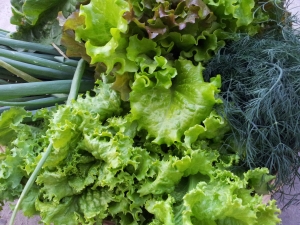Should You Be Concerned About Nitrates in Your Food
Although many consumers are concerned about potential contaminants such as nitrate in their water supply, they often give very little thought to what nitrates may be contained in food. Water supplies are heavily regulated to ensure that nitrate is kept below 10 parts per million. However, the FDA does not regulate the levels of nitrate contained in foods.
The Potential Dangers of Nitrates:
Although nitrates or nitrites are considered to be a normal component of an average diet, as with minerals, excessive amounts can actually be responsible for a number of problems. This is especially an issue for children and infants who due to their lower body weight, consume more nitrates than adults. Nitrates have been linked to a number of conditions such as cancers of the colon, rectum,stomach, bladder, ovaries, thyroid and pancreas. It has also been linked to non Hodgkin lymphoma and leukemia.
Nitrates naturally occur in vegetables and fruits such as celery and spinach. However, they are also found in synthetic food preservatives such as sodium nitrate. Sodium nitrate or potassium nitrate are added to cured meat to prevent the fats from becoming rancid, prevent the growth of bacteria and even to preserve the color. Nitrates can also enter the food chain as a result of nitrogen based fertilizer products contaminating water run off.
Minimizing the Consumption of Nitrates:
Nitrates can convert into nitrosamines, which are carcinogens, if they are exposed to high levels of heat during the cooking process. Nitrate based food additives can also convert into nitrites after consumption. It is thought by scientists, and researchers believe that it is these conversions, which could be responsible for the medical conditions listed above. Nitrates have also been linked to infant health issues and pregnancy complications.
However, before you eliminate nutrient rich vegetables due to their nitrate content, it is important to understand that naturally occurring nitrates are often consumed with the vitamin C contained in fruits and vegetables, which can inhibit the conversion of nitrate into nitrosamines. This means that it can be simple and easy to minimize the nitrates in your diet without compromising your vitamin and mineral consumption. For example, if you minimize the cured meats and processed foods in your diet, you can immediately reduce the nitrates in your diet. You will need to carefully read your food labels as nitrates are presents in sausages, cold cuts and hot dogs. They can even be found in some meat free items. You should be wary of “uncured” items which may contain ingredients such as celery juice, which could actually increase the nitrate content of the item. Ideally, you should avoid foods which have been grown with synthetic nitrogen based fertilizers. You could switch to organic foods, which will dramatically reduce harmful chemicals including nitrates from the produce you consume. You can also counter the effects of nitrates by increasing your consumption of antioxidant rich foods such as blueberries, which can reduce the rate of conversion of nitrate into nitrosamines.
We specialize in water filtration and can help you to eliminate the nitrates which may have accumulated in the groundwater or your water supply.
About The Author:
Greg Scott is President of Valparaiso based Miracle/EcoWater Systems, the premier water conditioning company in Northwest Indiana serving the Lake, Porter and LaPorte County areas. A 3rd generation water treatment professional, Greg grew up in the family owned business started by his grandfather in the late fifties. He has made water treatment his life and under his direction and high-standards, the company’s water treatment experience, knowledge, and products are unrivaled in region.
